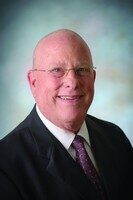 I had a big surprise this holiday season. My 79 year old mother finally requested that she be set up on the Internet and e-mail so she could communicate with her friends. She has had a computer for years that she used for playing card games and the occasional letter, but has resisted being connected to the Internet out of fear of being exposed to things she didnt want to be involved with. These were primarily unsavory sites and the fear of her computer “catching a virus.” When I informed her what she could now do with her newly found interest, she was astounded.
I had a big surprise this holiday season. My 79 year old mother finally requested that she be set up on the Internet and e-mail so she could communicate with her friends. She has had a computer for years that she used for playing card games and the occasional letter, but has resisted being connected to the Internet out of fear of being exposed to things she didnt want to be involved with. These were primarily unsavory sites and the fear of her computer “catching a virus.” When I informed her what she could now do with her newly found interest, she was astounded.
This story is being repeated across the country with more and more seniors being connected to the web and demanding access to information. The use of the Internet in persons over the age of 65 has increased 15% from 2000 to 2004. (Pew study, 2004) 22% of people over the age of 65 now use the Internet routinely and the overwhelming reason, accounting for 66% of the increase based on the Pew study, is a desire among seniors to seek healthcare information. With our population aging and retiring at a record pace, we are facing a “silver tsunami” in healthcare, not only from the standpoint of the provision of care, but with an ever increasing demand for high quality medical information. Software giants such as Google and Microsoft are rapidly developing ways to take advantage of these trends. Both are developing portals where patients can store their medical informationand patients are demanding that physicians send that information to these repositories.
As an internist, in the past few years I have seen increasing patient requests for direct e-mail access to physicians as well as electronic access to health records. Patients really want to get their information from their provider, not some random Web site. With more and more physicians adopting electronic health records (EHRs), the natural link to the electronic world exists. Patient portals linked to the EHR are now starting to provide that access. IC-MyHealthRecord by InteGreat Concepts, a MED3OOO company, is an example of how this demand is being met. Patients, through this system, have a direct link to their health records. They also have a secure messaging system that will communicate directly with their physicians practices. This system also provides that vital link that seniors and others are seeking to high quality healthcare information. Healthcare information is now available via their physicians, not an unknown entity.
Patient portals have a very bright future. Not only are they providing information links to physicians, they are rapidly becoming an avenue for care. E-visits are now being reimbursed by CMS and some major insurance carriers. This allows seniors to access care without coming into the office as frequently as in the past. Several studies have shown that chronic diseases such as diabetes are better managed by monthly e-visits coupled with twice -yearly visits in the office. This combination has improved outcomes and improved quality of care with clinical evidence mounting, the wave of office visits via the Internet continues to increase.
Now back to my mother and her request. I have indeed hooked her up to that great mass of information called the Internet. She has already asked how she can get into her bank accounts via the web. I am anticipating her asking her physicians if they have IC-MyHealthRecord and if she can e-mail them. With more and more of our population reaching senior status, this story will be repeated over and over again. If we physicians take a critical look at whats ahead and help control our own future, we will be able to meet those demands for increased access and information via solutions such as IC-MyHealthRecord and provide that link that people, like my mom, are looking for.
Post Views: 750
 I had a big surprise this holiday season. My 79 year old mother finally requested that she be set up on the Internet and e-mail so she could communicate with her friends. She has had a computer for years that she used for playing card games and the occasional letter, but has resisted being connected to the Internet out of fear of being exposed to things she didnt want to be involved with. These were primarily unsavory sites and the fear of her computer “catching a virus.” When I informed her what she could now do with her newly found interest, she was astounded.
I had a big surprise this holiday season. My 79 year old mother finally requested that she be set up on the Internet and e-mail so she could communicate with her friends. She has had a computer for years that she used for playing card games and the occasional letter, but has resisted being connected to the Internet out of fear of being exposed to things she didnt want to be involved with. These were primarily unsavory sites and the fear of her computer “catching a virus.” When I informed her what she could now do with her newly found interest, she was astounded. 

























